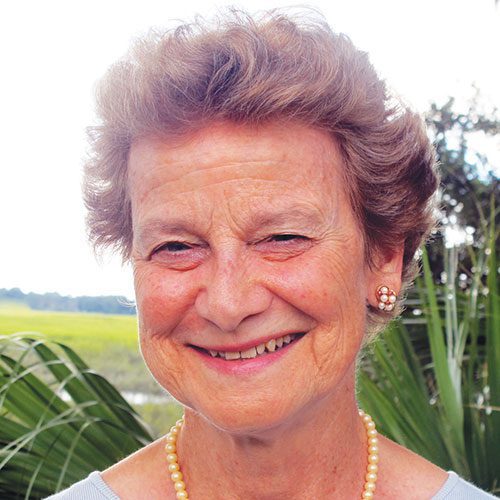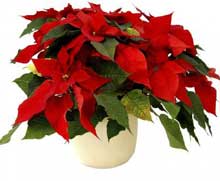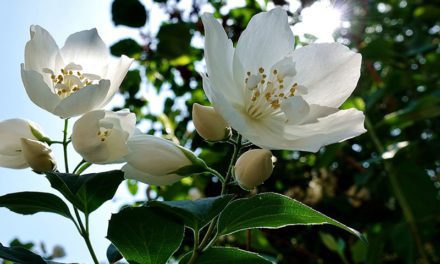As I prepared to leave home in Mayfield, Kentucky, years ago for my freshman year at Murray State College, my mother had two pieces of wisdom for my foray into the wide world. The first, I feel certain, came from her years in Al-Anon. “Never take a drink if you need one.” The second has become one of the best pieces of advice I’ve received through the years, and I still use it to this day. “No matter what situation you find yourself in, you’ll be fine as long as you have an alternative.”
Because life can be full of surprises, situations arise that make us uncomfortable physically and/or emotionally, that may require major, life-changing decisions we don’t necessarily feel qualified to make. Often with an immediate deadline.
My mom’s advice essentially meant “use your brain, dear.” Without exception, if I’ll just step back from a situation, take a couple of deep breaths, and observe its truths and fallacies, as long as an option appears, I can rock on with what seems to be my best direction. Though life’s twists and turns never come with guarantees, I always feel fairly sure of myself if I have a backup plan of some sort, even if there’s a hole or two in its logic. If I don’t end up resorting to it, those holes don’t make a whit’s worth of difference. And if I do, perhaps they’re simply aerating a great idea.
Let’s take a look at health care. Growing up in a family with medical ties, I learned to trust allopathic medicine, i.e. a system of medical practice that emphasizes diagnosing and treating disease and using conventional, evidence-based therapeutic measures, such as drugs or surgery.
That mindset lasted until after college, when I experienced several ouchy falls from horses on the racetrack. Nothing broken, thank goodness, but constant lower back pain that several rounds of sports medicine treatment couldn’t relieve. I remember a friend suggested I try chiropractic. The word that popped into my mind was “Quack.” Not the duck variety, mind you, but my dad the doc’s assessment of that practice.
However, the continuation of pain drove me to try it. Turns out the practitioner I chose – Dr. Kathy Bolton in Lexington KY – had found relief from a longtime horseback riding injury through chiropractic and was so impressed with her recovery, she went back to school and became a chiropractor. Though my pain didn’t disappear overnight, through a series of treatments and a few lifestyle changes, it began easing. At Dr. B’s suggestion, I combined chiropractic visits with osteopathic treatment (see below) for a time, and eventually, the pain that had prevented sound sleep for quite some time, disappeared.
I now know that chiropractic is a form of complementary medicine based on the idea that your body can heal itself with the help of specific hands-on manipulations from a trained professional. These manipulations help realign your joints and can potentially lead to pain relief. Chiropractic is known to benefit neck pain, back pain, osteoarthritis symptoms, headache symptoms, scoliosis symptoms, and posture issues. It can also improve athletic performance and general “moving around,” among many other things.
One of the fastest- growing health care professions in the country that some people still consider alternative, osteopathic medicine trains its practitioners to look beyond their patient’s symptoms to understand how lifestyle and environment factors impact one’s well-being. Doctors of Osteopathic Medicine (DOs) also receive special training in the musculoskeletal system, the body’s interconnected system of nerves, muscles, and bones. DOs practice in all medical specialties, including primary care, emergency medicine, OBGYN, pediatrics, psychiatry and surgery, and bring a truly comprehensive approach to patient care.
Following are a few more practices considered to be alternative.
A Japanese technique for reducing stress and promoting relaxation, Reiki involves the laying on of hands and is based on the concept that a life force energy flows through us and causes us to be alive. A low life force energy can result in a propensity to feel stress or get sick, whereas a high life force energy promotes a good mood and happiness.
Reiki practitioners’ techniques can be individual, though all treat the body, emotions, mind, and spirit. A simple, natural, and safe method of spiritual healing and self-improvement, Reiki has been effective in helping every known illness and malady and always has a beneficial effect that can be felt as relaxation, peace, security and a glowing feeling of well-being. Reiki also works in conjunction with all other medical or therapeutic techniques to relieve side effects and promote recovery.
A key component of traditional Chinese medicine, acupuncture involves the insertion of very thin needles through your skin at critical points on your body. A technique for balancing the flow of life force – chi or qi (both pronounced chee) – believed to flow through pathways, or meridians, in the body. Practitioners believe that inserting these needles into specific places on your body will rebalance your energy.
Acupuncture is used to relieve discomfort associated with conditions such as chemotherapy-induced and postoperative nausea and vomiting, dental pain, fibromyalgia, headaches, labor pain, neck and back pain, respiratory disorders, and osteoarthritis. Increasingly, it is being used for overall wellness, including stress management.
Another alternative therapy is reflexology. Based on the idea that the foot – and/or hand – is a map of the body’s organs and systems, this treatment applies hands-on pressure to bring relaxation and healing to the corresponding areas of the body. Reflexology may reduce pain and psychological symptoms, such as stress and anxiety, and lead to better sleep and overall health.
If any of the aforementioned practices intrigue you and you want to give one or more a try, be sure to find a practitioner who has creds, i.e. has the required education to practice, is licensed, and if possible, recommended by someone you know and trust. Feel free to interview the practitioner and see what your intuition says about them. We’re all individuals. Some practitioners are a fit for some folks and not for others, just as some treatments work well for some people and not for others.
Remember, the most important part of taking care of your health is you. Choose whatever method works for yourbody to relieve stress and to nudge you on the path to wellness. That can be a physician, an alternative practitioner, a massage therapist, a hiking club, a singing group, a boat on the river, or a walk on the beach. Preferably, a combination.
Feminist writer Germaine Greer has her own idea. “A garden is the best alternative therapy.”
All that said about medical alternatives, I believe there’s a place for both allopathic (Western) and homeopathic (Eastern), or alternative, practices of medicine. Strike a balance between the two in your health care and you’ve struck gold!








